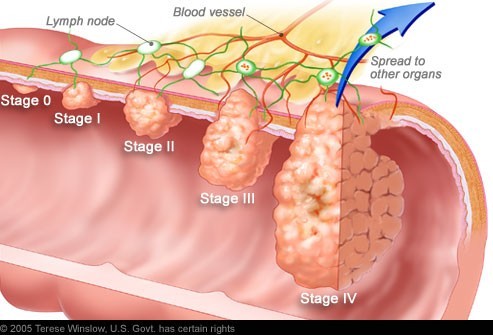- You are here:
- Home »
- Blog »
- non-conventional therapies »
- Colon Cancer MSI High
Colon Cancer MSI High

From: Ning
Subject: Colon cancer treatment
Hi David-
My sister, who lives in China, has colon cancer and has been treated with FolFox after surgery. She was also tested MSI High.
I have heard that patients of MSI high might not respond well to folfox treatment. Shall she consider stopping the chemotherapy or consider a different chemotherapy medicine? What would be an alternative chemotherapy medicine? Thanks. Ning
- Cancer Survivor
- Cancer Coach
- Director PeopleBeatingCancer
Recommended Reading:
PeopleBeatingCancer Side Effects Program
Curcumin Targets FOLFOX-surviving Colon Cancer Cells via Inhibition of EGFRs and IGF-1R
“Curcumin (diferuloylmethane), which has no discernible toxicity, inhibits initiation, promotion and progression of carcinogenesis. 5-Fluorouracil (5-FU) or 5-FU plus oxaliplatin (FOLFOX) remains the backbone of colorectal cancer chemotherapeutics, but produces an incomplete response resulting in survival of cells (chemo-surviving cells) that may lead to cancer recurrence.
The present investigation was, therefore, undertaken to examine whether addition of curcumin to FOLFOX is a superior therapeutic strategy for chemo-surviving cells.
Forty-eight-hour treatment of colon cancer HCT-116 and HT-29 cells with FOLFOX resulted in 60–70% survival, accompanied by a marked activation of insulin like growth factor-1 receptor (IGF-1R) and minor to moderate increase in epidermal growth factor receptor (EGFR), v-erb-b2 erythroblastic leukemia viral oncogene homolog 2 (HER-2) as well as v-akt murine thymoma viral oncogene homolog 1 (AKT), cyclooxygenase-2 (COX-2) and cyclin-D1.
However, inclusion of curcumin to continued FOLFOX treatment for another 48 h greatly reduced the survival of these cells, accompanied by a concomitant reduction in activation of EGFR, HER-2, IGF-1R and AKT, as well as expression of COX-2 and cyclin-D1.
More importantly, EGFR tyrosine kinase inhibitor gefitinib or attenuation of IGF-1R expression by the corresponding si-RNA caused a 30–60% growth inhibition of chemo-surviving HCT-116 cells.
However, curcumin alone was found to be more effective than both gefitinib and IGF-1R si-RNA mediated growth inhibition of chemo-surviving HCT-116 cells and addition of FOLFOX to curcumin did not increase the growth inhibitory effect of curcumin.
Our data suggest that inclusion of curcumin in conventional chemotherapeutic regimens could be an effective strategy to prevent the emergence of chemoresistant colon cancer cells…”

